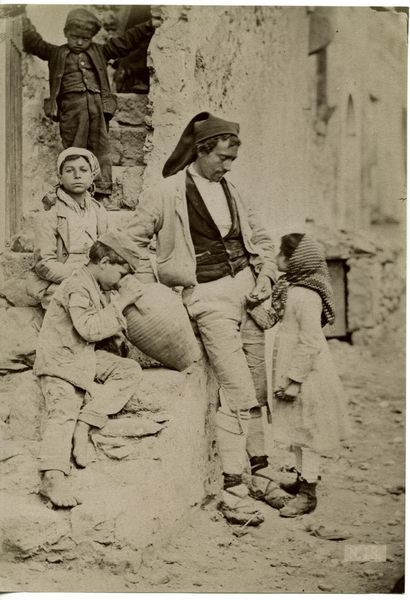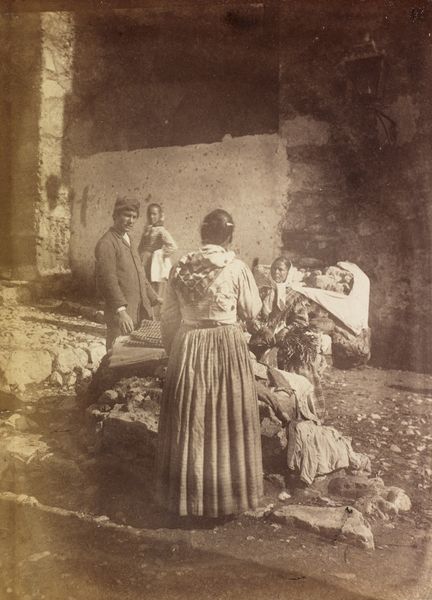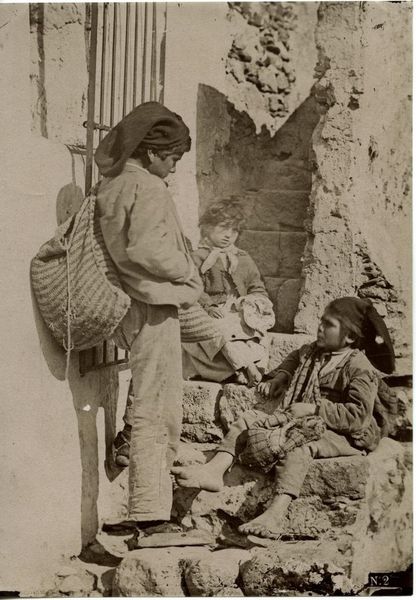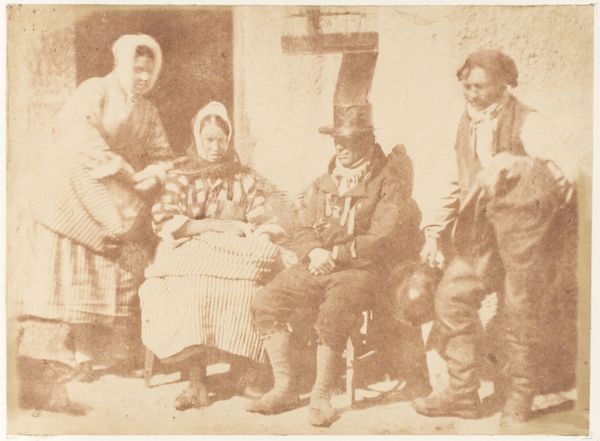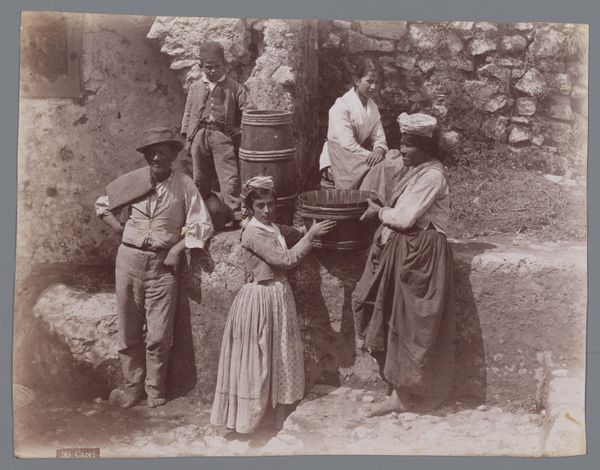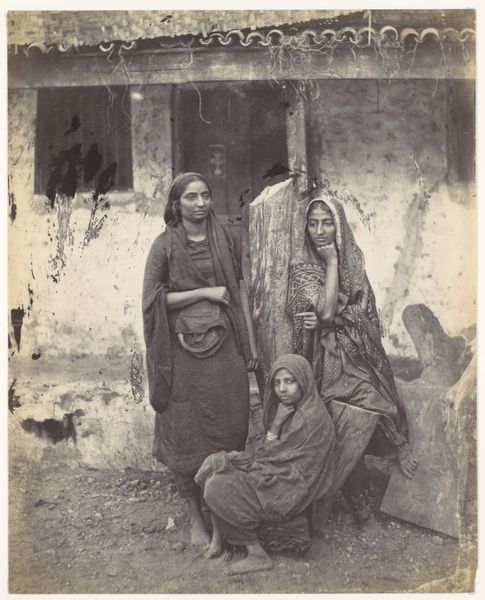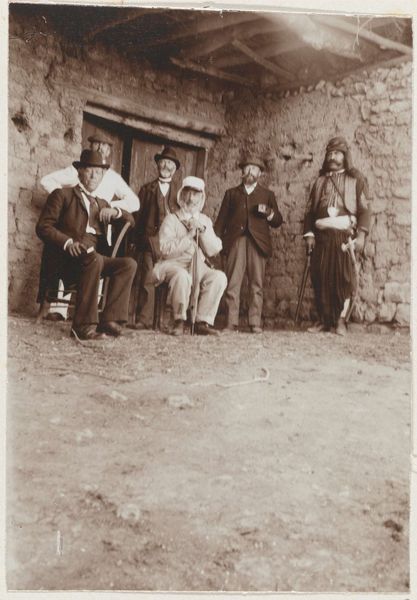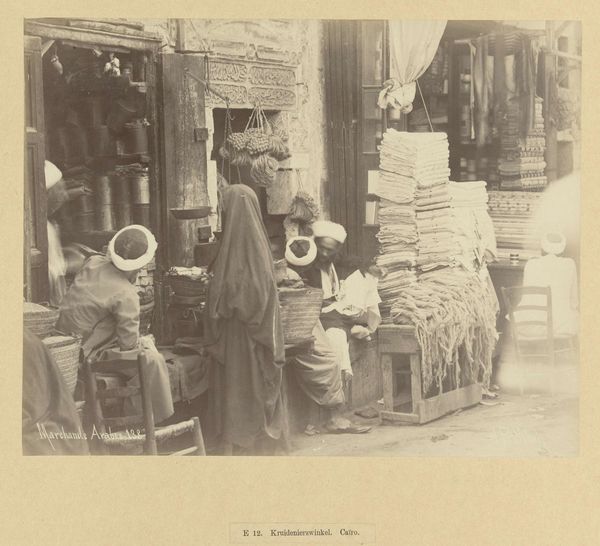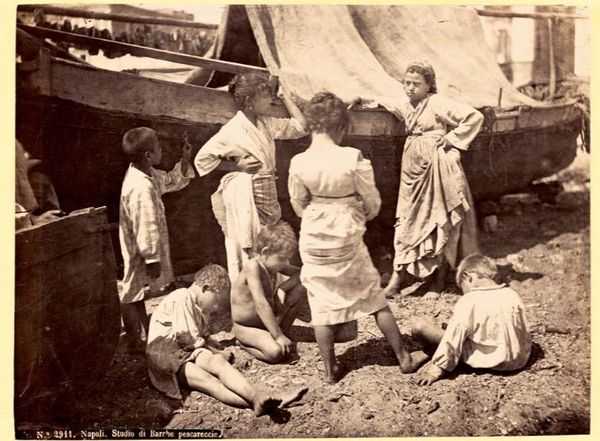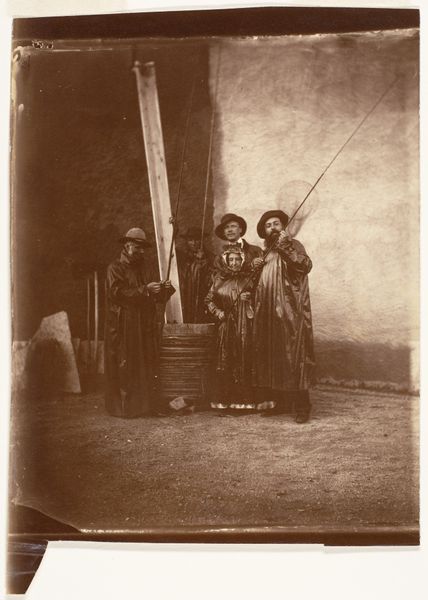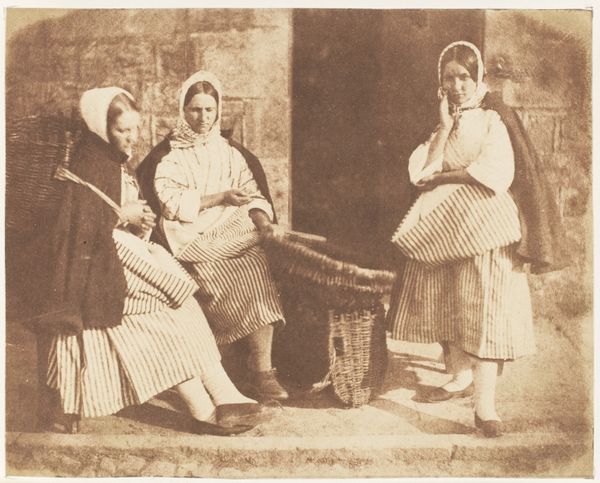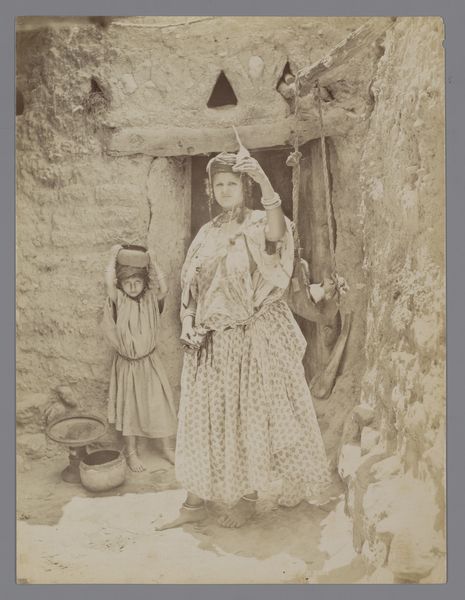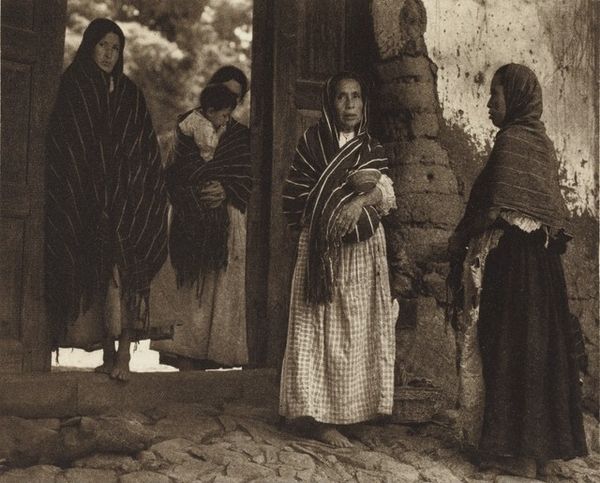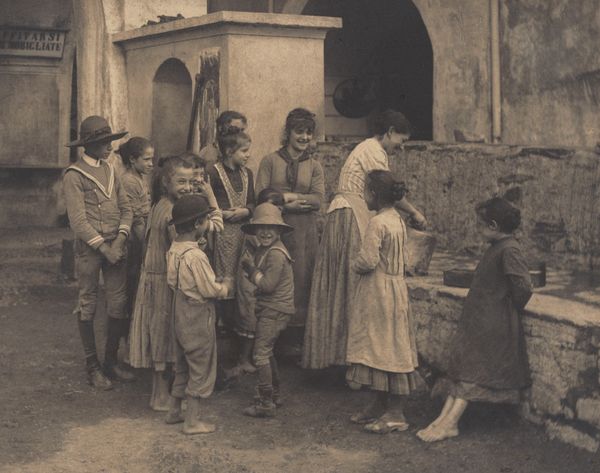
photography
#
portrait
#
african-art
#
photography
#
historical photography
#
genre-painting
#
realism
Copyright: Public domain
This photograph, titled "Limina family," was taken by Giuseppe Bruno sometime between 1860 and 1890. It's a salt print, an early photographic process involving paper soaked in salt and silver nitrate, then exposed to light through a negative. This gives the image a soft, slightly faded quality. The way this print was made influences its look, and also its meaning. Salt prints were relatively inexpensive, and so were used for commercial purposes. Here, Bruno has staged a scene of everyday life, likely for sale as a souvenir. Consider the clothing the family are wearing. It speaks to a specific time and place. The children's bare feet and worn garments hint at a life of labor, while the grandmother’s veil speaks to religious tradition. Bruno carefully arranged these elements, inviting viewers to imagine a way of life that may have been very different from their own. By understanding how this image was produced, and the social context in which it was made, we can appreciate it as both a beautiful work of art and a window into the past.
Comments
No comments
Be the first to comment and join the conversation on the ultimate creative platform.
